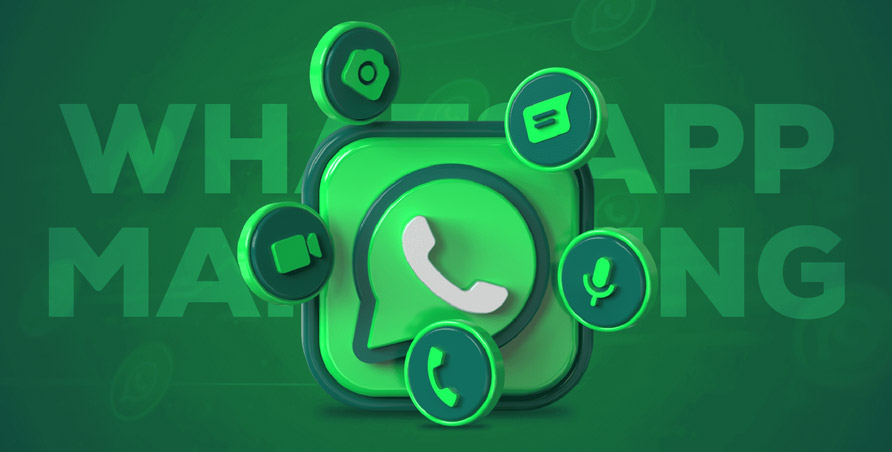
WhatsApp Marketing: Leveraging the Power of Direct Messaging
In today’s digital age, where instant communication is key, businesses are constantly seeking innovative ways to connect with their target audience. WhatsApp, one of the most popular messaging apps worldwide, has emerged as a powerful platform for businesses to engage with customers, build relationships, and drive meaningful results. In this article, we will explore the significance of WhatsApp marketing and how it can benefit businesses in their marketing efforts.
What is WhatsApp Marketing?
WhatsApp marketing refers to the use of the WhatsApp messaging platform as a marketing channel to communicate with customers and promote products or services. It involves leveraging the features of WhatsApp, such as text messages, multimedia sharing, and group chats, to establish a direct and personalized connection with customers. WhatsApp marketing can include a range of activities, such as customer support, product updates, promotional campaigns, and more.
Benefits of WhatsApp Marketing:
- Instant and Direct Communication: WhatsApp offers instant and direct communication between businesses and customers. Messages sent via WhatsApp are delivered instantly, ensuring prompt communication and quick responses. This real-time interaction helps businesses address customer queries, provide personalized assistance, and offer timely updates, fostering a sense of trust and reliability.
- Personalized and Targeted Messaging: WhatsApp marketing enables businesses to send personalized messages tailored to individual customers or specific target groups. With access to customer information and preferences, businesses can create customized offers, deliver personalized recommendations, and engage customers on a more personal level. This level of personalization enhances customer experience and boosts engagement.
- Multimedia Sharing: WhatsApp allows businesses to share a variety of multimedia content, including images, videos, audio messages, and documents. This versatility enables businesses to showcase products, demonstrate features, provide tutorials, and offer visual content that engages customers effectively. Multimedia content has a higher chance of capturing attention and conveying messages in a memorable and impactful way.
- Group Chats and Broadcast Lists: WhatsApp enables businesses to create group chats and broadcast lists, making it easy to reach a large audience simultaneously. Group chats can facilitate community engagement, customer support, or exclusive offers for a specific group of customers. Broadcast lists allow businesses to send messages to multiple recipients without revealing their contact information, maintaining privacy and convenience.
- Customer Support and Relationship Building: WhatsApp provides a convenient platform for businesses to offer customer support. Customers can reach out to businesses with queries, feedback, or issues, and businesses can respond promptly to address their concerns. This responsive and personalized customer support helps build strong relationships, enhance customer satisfaction, and foster loyalty.
- Cost-Effective Marketing: WhatsApp marketing is a cost-effective strategy compared to traditional marketing channels. Businesses can leverage the platform’s features and capabilities without incurring additional expenses. Moreover, WhatsApp offers a free messaging service, eliminating the need for SMS or phone call charges. This affordability makes it accessible to businesses of all sizes.
- Viral Marketing Potential: With WhatsApp’s forwarding feature, users can easily share messages, images, or videos with their contacts or in groups. This viral nature of WhatsApp can amplify the reach of marketing campaigns and content, leading to increased brand exposure and potential customer acquisition. By creating compelling and shareable content, businesses can tap into the power of viral marketing through WhatsApp.
- Analytics and Insights: WhatsApp Business API provides businesses with valuable analytics and insights to measure the effectiveness of their marketing efforts. Businesses can track message delivery, open rates, click-through rates, and other relevant metrics. These insights help businesses refine their strategies, optimize their messaging, and tailor their marketing efforts for better results.
Conclusion:
WhatsApp marketing offers businesses a unique opportunity to connect with customers on a personal and instant level. With its instant communication, personalized messaging, multimedia sharing capabilities, group chats, customer support features, cost-effectiveness, viral marketing potential, and analytics insights, WhatsApp marketing has become an essential tool in the marketer’s toolbox. Embrace the power of WhatsApp marketing to engage your audience, build meaningful relationships, and drive business growth in the dynamic digital landscape.